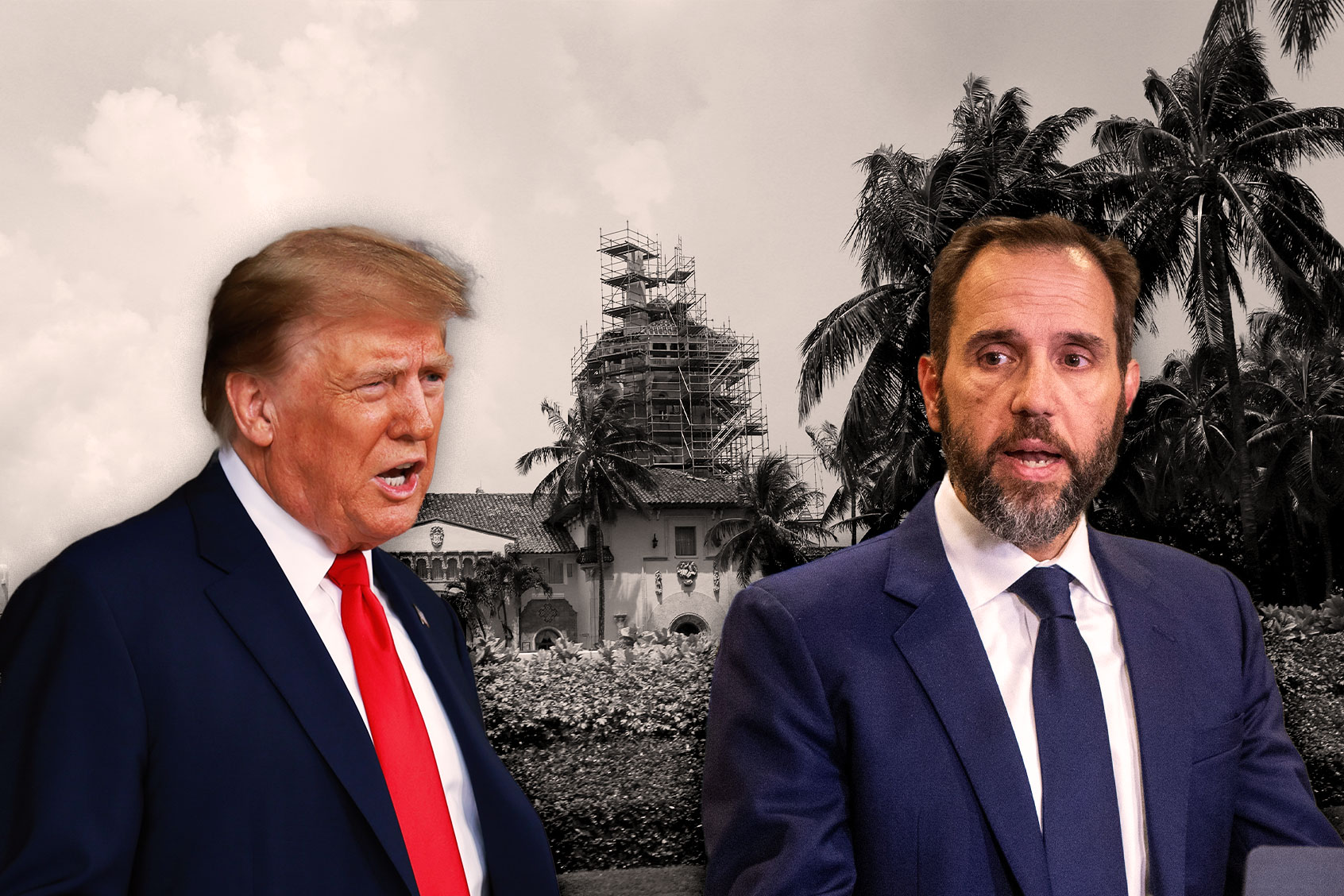Former President Donald Trump appeared at the federal courthouse in Fort Pierce, Florida, on Monday for a closed-door hearing in the classified documents criminal case. He faces charges related to taking classified documents with him after leaving the White House.
U.S. District Judge Aileen Cannon, appointed to the federal bench by Trump, may face heightened pressure due to the former president’s presence. She must decide whether prosecutors from special counsel Jack Smith’s office should be allowed to withhold or redact specific classified documents slated for disclosure during discovery, legal experts say.
The hearing takes place in a Sensitive Compartmented Information Facility (SCIF), where prosecutors and the defense team will present their arguments separately to the judge. Trump’s legal team is expected to request access to classified evidence not yet disclosed to them, according to CNN.
Donald Trump (Credits: POLITICO)
However, prosecutors and intelligence agencies plan to withhold this evidence, potentially providing only summaries due to its sensitive nature.
Former U.S. Attorney Barb McQuade, a law professor at the University of Michigan, explained that certain classified information can only be discussed in a SCIF due to its design preventing electronic eavesdropping. Trump’s participation in the hearing is notable since defendants typically do not participate.
“Here, however, Trump is a unique defendant in that he had lawful access to this information at the time he received it while president of the United States,” McQuade said. “The question here is whether he unlawfully retained it after his presidency ended, and whether he obstructed the investigation.”
The Trump legal team may argue during the trial that the classified documents he retained no longer qualified as “national defense information” under the Espionage Act when found with him in 2022, according to sources cited by The Guardian. They argue that un-redacted portions of the documents are necessary to provide context.
Bennett Gershman, a former New York prosecutor and law professor at Pace University, criticized the judge’s decision to allow Trump and his lawyers to view classified documents privately, without prosecutors present. He emphasized the need for maximum security to prevent disclosure and dissemination of sensitive materials.
Judge Cannon initially ordered documents to be filed on the public docket, but the special counsel later urged her to reconsider, citing concerns for the safety of potential witnesses. The decision to permit a closed-door meeting between Trump and his lawyers, including viewing highly classified materials, has raised concerns about transparency and fairness.
While Trump can attend the hearing, his co-defendants, Walt Nauta and Carlos de Oliveira, are not allowed due to lacking security clearance. Nauta, Trump’s valet, and de Oliveira, a former maintenance worker at Trump’s Mar-a-Lago Club, were charged with obstruction for allegedly concealing the classified documents.
The trial is scheduled for May 20, but ongoing disagreements may delay it. Trump’s legal team has sought to postpone the trial, arguing that the circumstances of the case warrant no urgency in speeding up the proceedings.
